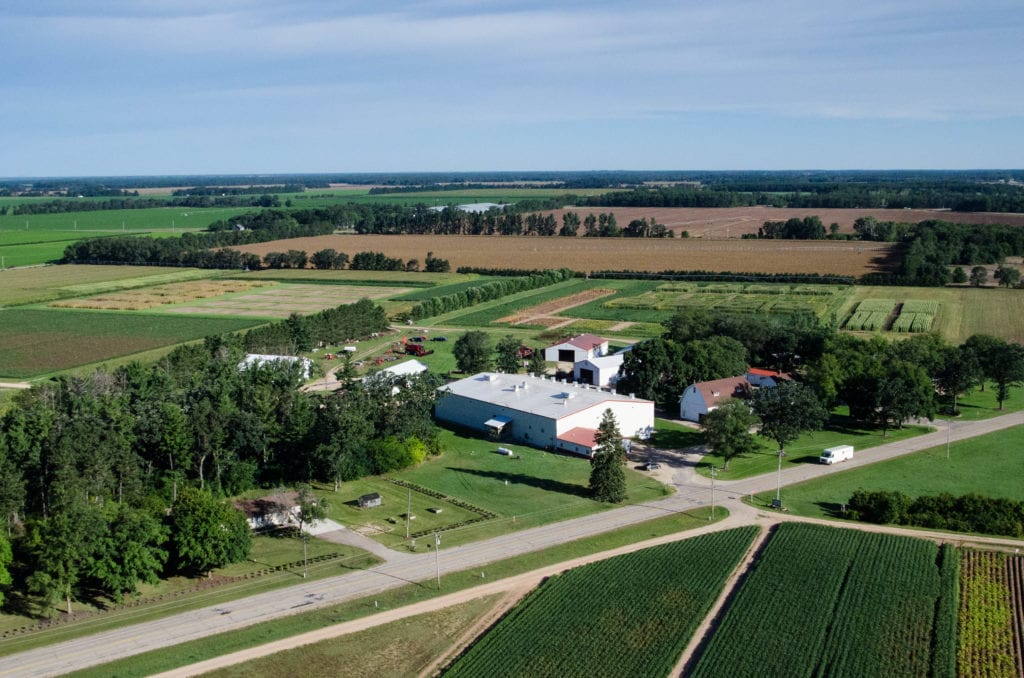Sam Perez does more than maintain and operate equipment on the 500-acre site
By David Tenenbaum, science writer, University of Wisconsin-Madison Communications & Spinoffs

Potatoes are heaped high in the Wisconsin Potato & Vegetable Storage Research Facility at the Hancock Agricultural Research Station (HARS). The research station is situated in the middle of the Central Sands area of Wisconsin, one of the most productive potato-growing regions in the country.
Hancock has stored these potato samples to see how well they will last in storage, and equipment operator Sam Perez keeps a close eye on the spuds.
By monitoring sugar levels, frying test batches of potato chips and using other techniques, Perez and his fellow station employees help growers decide when to market their stored potatoes.
Waiting longer usually means a higher price, but only if the potatoes maintain their quality and remain unsprouted.
Storage is a big concern for Paul Bethke and other University of Wisconsin (UW)-Madison horticulturists who breed and grow potatoes at the station.
“One goal of the breeding and storage programs is to have families eating Wisconsin potatoes at the July 4th barbecue,” says Amber Gotch, who works alongside Perez in the lab. “That requires nine months of safe storage.”
Wisconsin is ranked in the top five nationally in production of potatoes, sweet corn, green beans, peas, carrots and many other processed vegetables.


